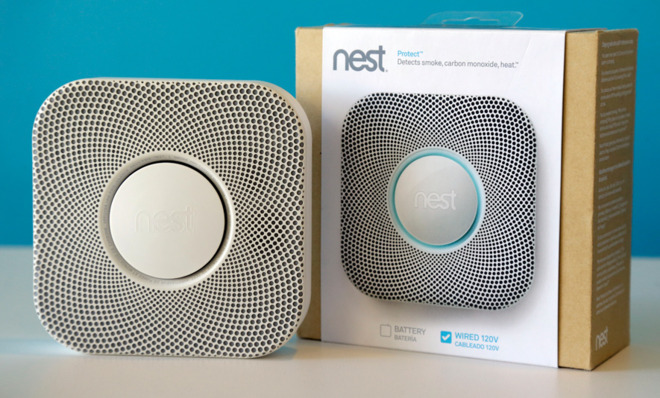What Google really bought with its Nest acquisition
For $3.2 billion, Google is laying out the framework for future infrastructure

On Monday night, Google announced it bought a company that makes thermostats and smoke detectors. That company, Nest, was very expensive: At $3.2 billion, it is the priciest acquisition so far of 2014.
It's a considerable investment, yes, but one that paints a clear roadmap for where Google inevitably would like to position itself over the next decade. In more than a few ways — which we'll get to in just a second — Nest might even be a bargain.
So what is Nest, exactly? Unlike the confusing plastic boxes most people use to control the temperatures inside their homes, Nest's thermostats are "smart" in that they automatically reprogram themselves based on your preferences. Its temperature, humidity, and motion sensors can deduce not just when you're home or when you leave in the morning, but specifics like what room you're in, what time you usually get into bed, and more. It learns your behavior and adjusts to your comfort levels automatically. Energy bill-wise, it might even help you save a buck or two.
The Week
Escape your echo chamber. Get the facts behind the news, plus analysis from multiple perspectives.

Sign up for The Week's Free Newsletters
From our morning news briefing to a weekly Good News Newsletter, get the best of The Week delivered directly to your inbox.
From our morning news briefing to a weekly Good News Newsletter, get the best of The Week delivered directly to your inbox.
Although some pundits are (perhaps rightfully) approaching the news with mild trepidation, Google seems very enthusiastic about bringing Nest into the fold. "[Nest is] already delivering amazing products you can buy right now — thermostats that save energy and smoke/CO alarms that can help keep your family safe," Google CEO Larry Page said in a statement. "We are excited to bring great experiences to more homes in more countries and fulfill their dreams!"
So: What is Google getting, exactly? Well, a few things:
1. Perhaps most obviously, Google is getting another sleek, friendly, and sophisticated Trojan horse for the heavily fortified fortresses we call our homes. It's moving beyond the web and phones and into everyday objects. The Internet of Things, as Chris Ciaccia at BGR points out, presents a $14.4 trillion opportunity over the next decade, with tech's biggest players all betting big on smart TVs, entertainment centers, fridges, toasters, and — now — thoughtful little thermostats.
Apple, Microsoft, Google, and others are all vying to become the central mainframe your world at home revolves around; the Rosie to your Jetsons. As of now, at least, that very lucrative market is up for grabs. But in purchasing an exceptionally popular and trusted product like Nest, Google — which already has the best voice interfacing technology on the planet — may have just put a bit more distance between itself and the competition.
A free daily email with the biggest news stories of the day – and the best features from TheWeek.com
2. Nest was founded by two former Apple executives: Matt Rogers and Tony Fadell. Though he isn't a household name (yet), Fadell is a well-respected father figure in the industry who is credited with the design of a product you've probably used: The iPod.
So, it's a pretty safe assumption to say that he knows a thing or two about building category-redefining products, especially for gadgets we didn't know we needed. GigaOm founder Om Malik makes an excellent point:
There's also this interesting nugget:
3. Think about some of Google's recent acquisitions. There's real-time mapping software Waze, which some critics thought Google overpaid for. More recently, there was advanced robotics firm Boston Dynamics. Google is in the midst of extending its tentacles beyond cyberspace and into the physical world, particularly mobile machinery like smart cars and delivery robots. Perhaps more importantly (or ominously), it wants them to learn.
For the time being, Google claims Nest's personal and private data "will only be used for Nest products and services." That will realistically change at some point in the future.
And when it does, it isn't difficult to imagine some of the broader implications: Nest figures out when you leave your house every morning; Waze uses that to convey more-meaningful traffic data; Google's smart cars and delivery robots become that much more efficient. Seen through that lens, Google isn't just buying access into your home or living room; it's investing in future infrastructure and physical networks. Nest helps Google lay the framework for an entire grid.
-
 7 bars with comforting cocktails and great hospitality
7 bars with comforting cocktails and great hospitalitythe week recommends Winter is a fine time for going out and drinking up
-
 7 recipes that meet you wherever you are during winter
7 recipes that meet you wherever you are during winterthe week recommends Low-key January and decadent holiday eating are all accounted for
-
 Nine best TV shows of the year
Nine best TV shows of the yearThe Week Recommends From Adolescence to Amandaland